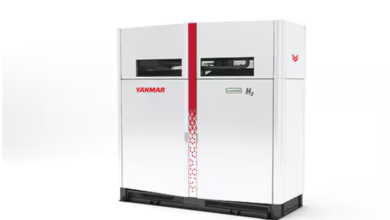CLF completes successful blast furnace hydrogen injection trial at Middletown works

Cleveland-Cliffs Inc. (CLF) announced that it has successfully completed a hydrogen (H2) injection trial at its Middletown Works blast furnace.
This groundbreaking introduction of hydrogen gas as an iron-reducing agent in the blast furnace is the first-ever use of this carbon-friendly technology in the Americas region. The successful use of hydrogen gas represents a significant step toward the future decarbonization of blast furnaces, which are necessary for the continued service of the most quality-intensive steel applications, particularly for the automotive industry.
During the trial completed, hydrogen gas was injected into all 20 tuyeres at the Middletown blast furnace, facilitating the production of clean pig iron – the foundation of high-end steelmaking. Hydrogen was used as a partial substitute for the coke necessary for iron reduction, ultimately replacing the release of CO2 with the release of H2O (water vapor) with no impact on product quality or operating efficiency. The hydrogen was delivered to the Middletown facility via the existing pipeline and transportation infrastructure in place for the facility’s other hydrogen uses, including for its annealing furnaces.
Lourenco Goncalves said, “We are proud to be the first Company in the Americas to inject hydrogen into a blast furnace – a demonstration of our commitment to develop and implement breakthrough technological advancements toward decarbonization. Cleveland-Cliffs thrives on innovation, so it was fitting that this major step was completed just a short distance from our Cliffs Research and Innovation Center in Middletown, Ohio.
This achievement proves our ability to use green hydrogen throughout our footprint when it becomes readily and economically available, including in our seven blast furnaces and our state-of-the-art direct reduction facility. We are already the world leaders in natural gas injection, and this success confirms there is a bright, sustainable and environmentally friendly future for the much-needed BF-BOF steelmaking technology.”
